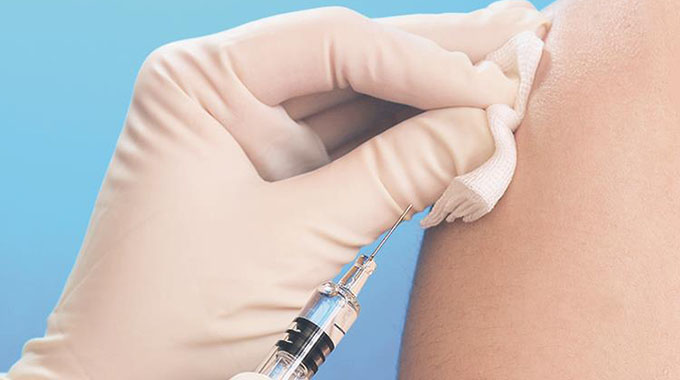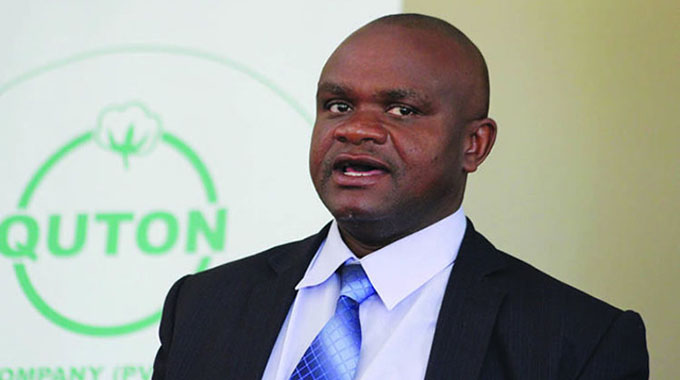Global crisis of confidence in vaccines a health threat

Beaven Dhliwayo Features Writer
Wellcome Global Monitor, the biggest global study into attitudes on immunisation on Wednesday released a report that suggests low vaccination confidence in some regions.
The low confidence is a step backwards for the globe in its fight against deadly yet preventable diseases.
The first Wellcome Global Monitor survey, which canvassed attitudes among 140 000 people worldwide, shows clear links between people’s trust in doctors, nurses and scientists and their confidence in vaccines.
It also shows that mistrust in government institutions goes hand-in-hand with doubts about vaccines’ safety.
According to the World Health Organisation (WHO), vaccine hesitancy is one of the top 10 threats to global health.
Recently, there have been a growing anti-vaccine movement across the world, and Zimbabwe is not spared, fuelled by social media and anti-establishment populists.
The anti-vaccine movement is putting lives at risk and according to health experts, may be to blame for measles outbreaks surging in recent years.
“Health experts warn that vaccine sceptics are driving down immunisation rates for measles, HPV against cervical cancer, flu and other diseases — and that their opinions are increasingly being amplified by social media and by right-wing populists equally sceptical of medical authorities,” wrote Sarah Boseley, the Guardian Health Editor.
The global survey reveals the number of people who say they have little confidence or trust in vaccination.
“When asked if vaccines were safe, 79 percent ‘somewhat’ or ‘strongly’ agreed, seven percent somewhat or strongly disagreed and 14 percent neither agreed nor disagreed.
“When asked if they believed vaccines worked, 84 percent agreed either strongly or somewhat, five percent either strongly or somewhat disagreed and 12 percent neither agreed nor disagreed,” read the Wellcome report.
Wellcome Head of Vaccines Charlie Weller said there is need for health institutions all over the world to educate their populations and restore confidence in vaccinations.
“It is reassuring that almost all parents worldwide are vaccinating their children. However, there are pockets of lower confidence in vaccines across the world and we cannot afford to be complacent.
“To ensure society gets the full benefit of vaccines, we need to make sure that people have confidence in both the safety and effectiveness of vaccines and understand more about the complex reasons why this is not always the case,” says Weller.
The report points to a worrying culture emerging of anti-vaccine yet there is overwhelming evidence that vaccination is the best defence against deadly and debilitating infections, such as measles.
The measles vaccine prevented more than 20 million deaths between 2000 and 2016 alone; while maternal and neonatal tetanus, which has a fatality rate of 70-100 percent among new-borns, has been eliminated in all but 15 countries.
They have completely got rid of one disease — smallpox.
Zimbabwe has been at the forefront of promoting immunisation for children since its attainment of Independence in 1980.
Before that, vaccination programmes were restricted to the urban elite and children of school-going age were the main target, in spite of the fact that younger children are often more vulnerable to diseases.
But some other diseases, such as measles, are making a resurgence and experts say people avoiding vaccines, fuelled by fear and misinformation, is one of the main causes.
Immunisation expert at WHO Dr Ann Lindstrand in a statement said the current situation was extremely serious.
“Vaccine hesitancy has the potential, at least in some places, to really hinder the very real progress the world has made in controlling vaccine-preventable diseases.
“Any resurgence we see in these diseases is an unacceptable step backwards,” says Lindstrand.
Countries that were close to eliminating measles have been seeing large outbreaks.
According to WHO, there is a rise in measles cases in almost every region of the world, with 30 percent more cases in 2017 than 2016.
The anti-vaccines movement which is making some people decide not to vaccinate, for reasons known to them, poses a risk to others as well as the individual from being infected themselves.
If enough people are vaccinated, it stops the disease from spreading through a population — something experts call “herd immunity”.
Imran Khan, from the Wellcome Trust, said: “We are really concerned at the moment because for measles, anything less that 95 percent coverage can lead to outbreaks and that is what we are seeing.”
According to the survey, trust for vaccinations was high in lower-income areas, whilst some people living in several higher-income regions were among the least certain about vaccine safety.
To fight the anti-vaccine movements, parents should be responsible enough and protect their children’s health and well-being especially from vaccine-preventable diseases.
In the country, some sections are still hesitant to get their children vaccinated although the Ministry of Health and Child Care is clear that it is the child’s right to undergo immunisation.
Section 42 of the Public Health Bill of 2017 provides for compulsory immunisation of children and incapacitated persons where there are compelling reasons of public health specifically regarding minors and legally incapacitated individuals.
The Bill states that the health minister shall by notice in the Government Gazette declare the date on which compulsory immunisation shall take place.
WHO says that vaccine-preventable diseases claim the lives of more than half-a-million children younger than five years every year in Africa — representing 56 percent of the global deaths related to vaccine-preventable diseases.
According to a UNICEF report in 2016, the infant mortality rate and under-five mortality rate is 50 deaths per 1 000 live births and 69 deaths per 1 000 live births respectively in Zimbabwe (ZDHS 2015).
The study, which was carried out by the Ministry of Health and Child Care and UNICEF Zimbabwe to explore reasons for vaccine hesitancy among sociocultural and religious groups in Masvingo and Manicaland provinces, pointed out socio-cultural and religious, political and institutional factors as key drivers of vaccine hesitancy.
The results highlighted the influence of apostolic religion, supply-side factors, traditional leadership and police in the uptake of vaccination services in the study sites in Zimbabwe.
While it is every mother’s concern to closely monitor medicines that are administered to their young ones, it is equally important as well to have trust in health experts at the Health Ministry.
Studies prove that fully immunised children have a better chance of living up to their full potential, both intellectually and physically.









Comments